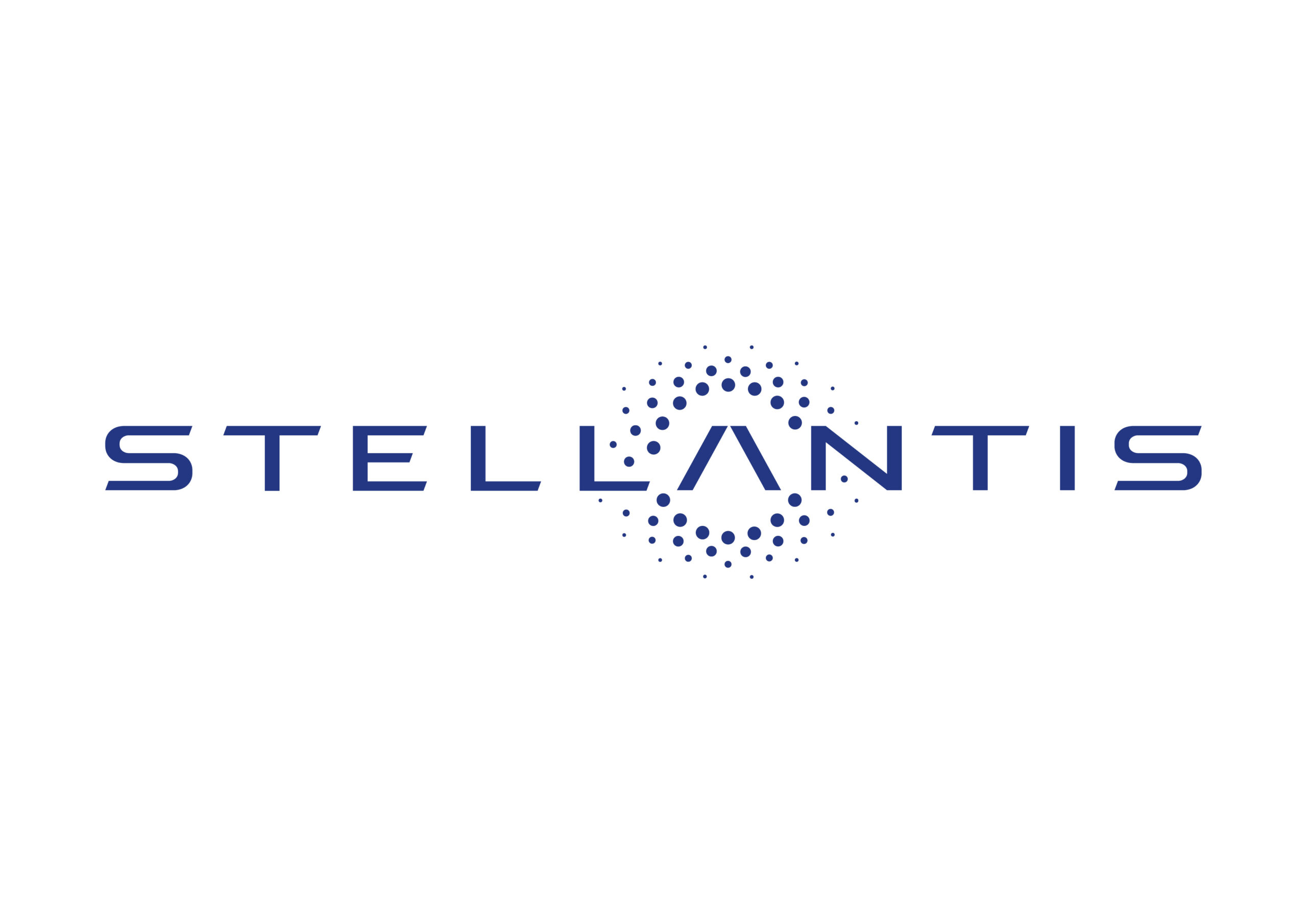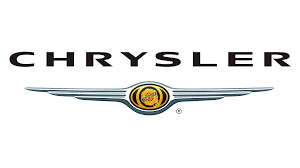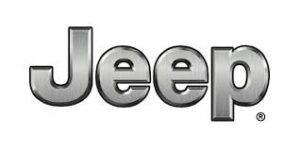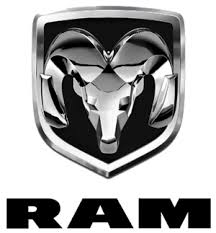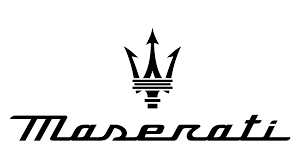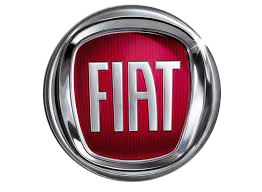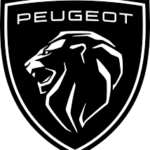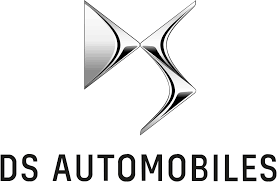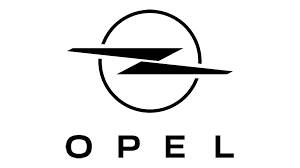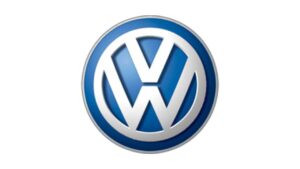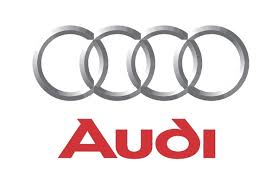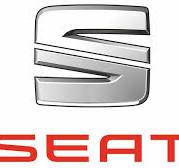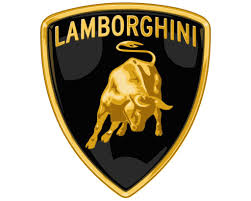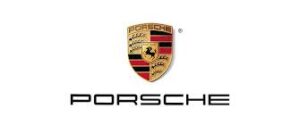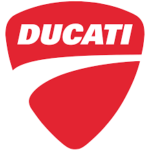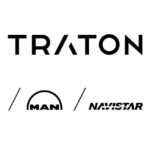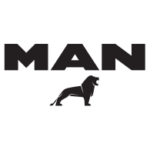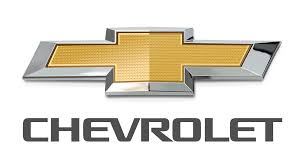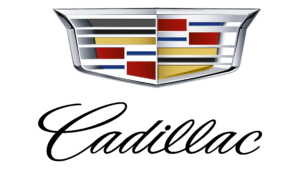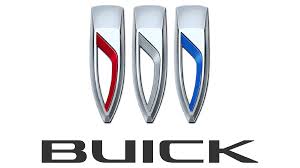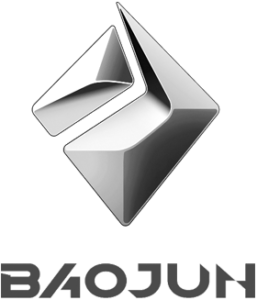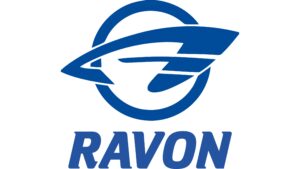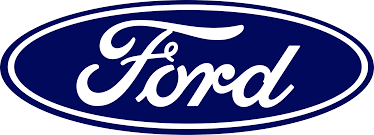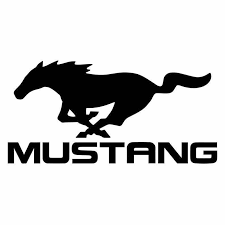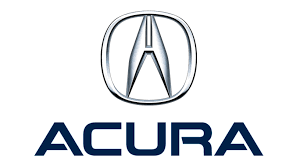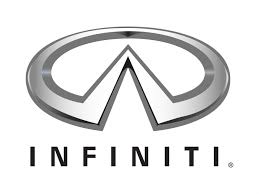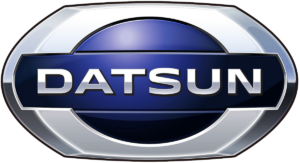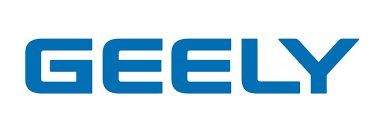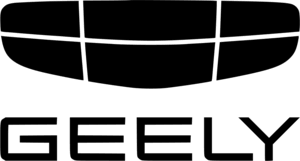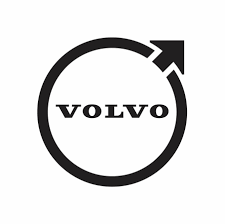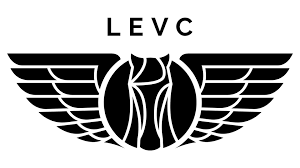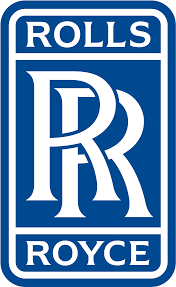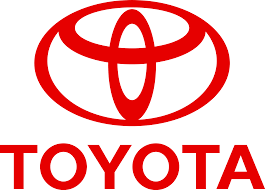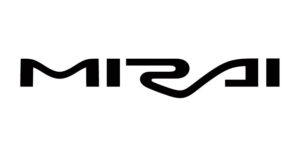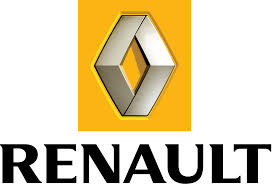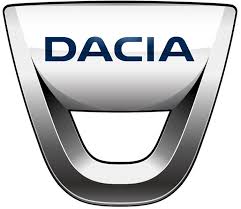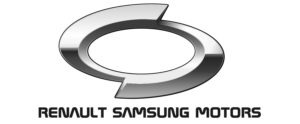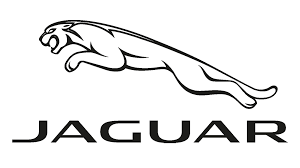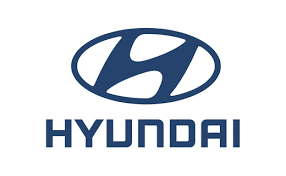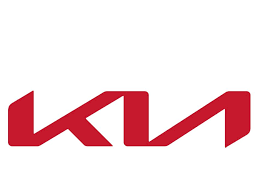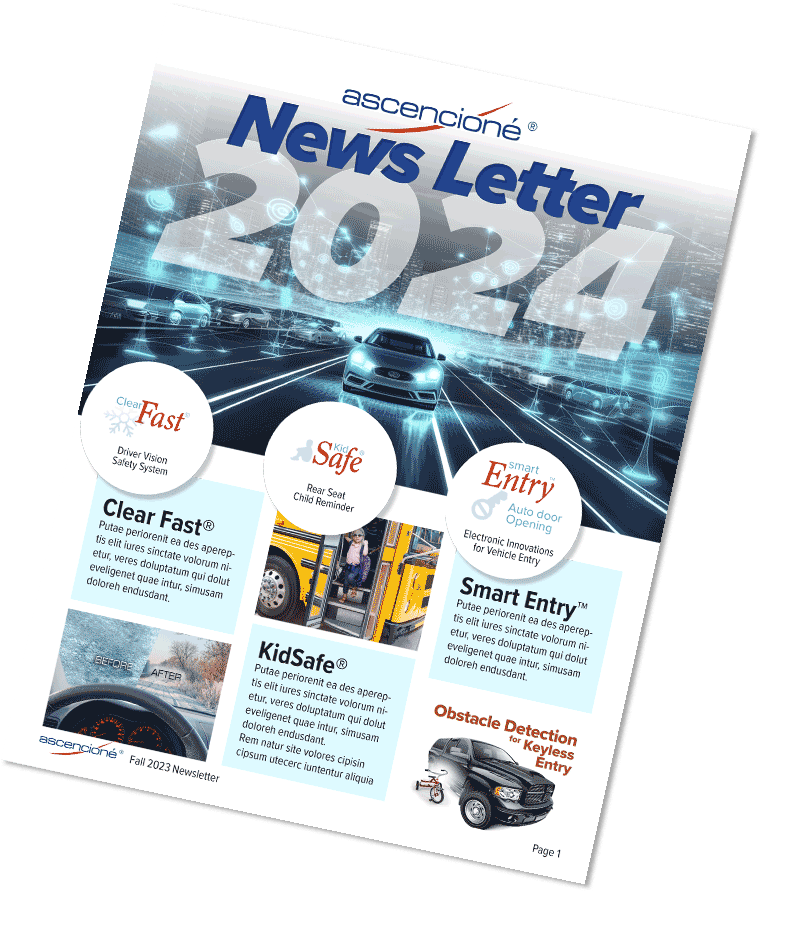Our Electrical System Expertise: Partnering with the World’s Leading automotive manufacturing companies - Brands
The world’s leading car / automotive manufacturing – brands, including Stellantis, VW, GM, Ford, Honda, Mercedes-Benz, Nissan, Geely, BMW, Toyota, Renault, Tata, and Hyundai. This page provides a comprehensive overview of each company and is detailed with a focus on its unique strengths, brand portfolio, and global reach. Notably, the manufacturers we’ve partnered with are highlighted in blue, while those we have yet to collaborate with are marked in gray. Our expertise is demonstrated through over 400 patents and 60+ industry firsts, achieved across many major OEMs and their associated brands, underscoring our commitment to innovation and excellence in the automotive industry.
We will list all EV OEM brands Here.
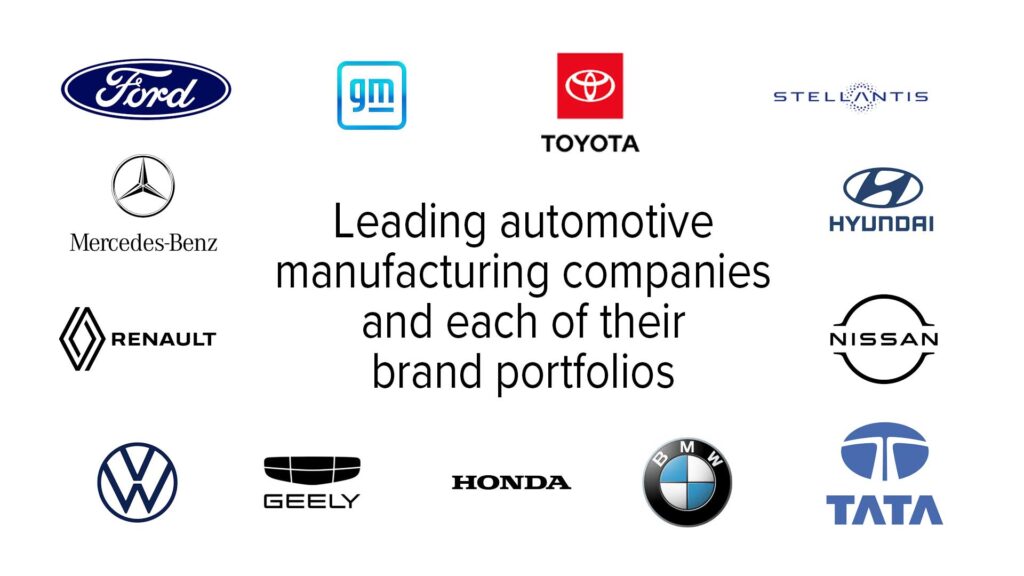
Click on the blue button for each brand’s portfolio.
Stellantis: A Global Automotive Powerhouse
Stellantis N.V. is a multinational automotive manufacturing corporation formed on January 16, 2021, through a 50-50 merger between Fiat Chrysler Automobiles (FCA) and the PSA Group (Peugeot Société Anonyme). The merger created the fourth largest automaker by volume and the third largest by revenue, with a broad portfolio of brands and a strong presence in markets around the world.
Brand Portfolio Stellantis boasts an impressive array of 14 brands, each with its unique heritage, market presence, and customer base:
- Chrysler: Known for its minivans and the iconic 300 sedan.
- Dodge: Famed for its muscle cars and performance vehicles.
- Jeep: An iconic brand synonymous with off-road capability.
- RAM: Specializes in trucks and commercial vehicles.
- Maserati: A luxury brand known for its high-performance sports cars.
- Alfa Romeo: Italian luxury and performance automobiles.
- Fiat: Known for small, stylish cars and city-friendly vehicles.
- Lancia: Though discontinued, it remains a revered name in automotive history.
- Abarth: High-performance offshoot of Fiat, known for sporty variants.
- Peugeot: French brand with a wide range of cars, from small hatchbacks to SUVs.
- Citroën: Known for its comfort-focused and innovative vehicles.
- DS Automobiles: Premium brand derived from Citroën, emphasizing luxury and technology.
- Opel: German brand with a strong presence in Europe.
- Vauxhall: The UK counterpart to Opel, offering similar models.
Global Reach Stellantis operates in over 130 countries, with manufacturing facilities in 30 countries. This global footprint enables the company to leverage economies of scale and optimize its production and distribution networks. The company employs over 400,000 people worldwide, contributing to its vast and diversified operations.
Innovation and Sustainability Stellantis is committed to innovation and sustainability, investing heavily in electric and hybrid vehicle technology. The company’s strategic plan includes launching more than 30 new electrified models by 2025. This push towards electrification is part of Stellantis’ broader goal to achieve carbon neutrality by 2038.
The company is also focusing on advancements in autonomous driving, connectivity, and mobility services, aiming to position itself as a leader in the evolving automotive landscape.
Financial Performance Since its formation, Stellantis has shown strong financial performance, benefiting from cost synergies and increased efficiencies resulting from the merger. The company’s diverse brand portfolio and global reach have helped it weather market fluctuations and capitalize on growth opportunities in different regions.
Challenges and Future Outlook Despite its strengths, Stellantis faces several challenges, including the need to navigate the transition to electric vehicles, manage supply chain disruptions, and respond to changing consumer preferences. However, the company’s robust strategic plan, strong brand portfolio, and commitment to innovation position it well to overcome these challenges and thrive in the future.
Stellantis is a formidable player in the global automotive industry, with a rich history, diverse brand portfolio, and a forward-looking approach to innovation and sustainability. As the company continues to evolve and adapt to the changing landscape, it is poised to remain a leader in the industry, delivering value to its customers, shareholders, and employees.
Volkswagen Group: Driving the Future of Mobility
Overview Volkswagen Group, commonly known as VW, is a German multinational automotive manufacturing company headquartered in Wolfsburg, Germany. Established in 1937, Volkswagen has grown into one of the largest and most influential automotive companies globally, encompassing a wide range of brands that cater to diverse market segments.
Brand Portfolio Volkswagen Group’s extensive portfolio includes some of the most iconic and revered brands in the automotive industry:
- Volkswagen Passenger Cars: The core brand, known for models like the Golf, Passat, and Beetle, offering a range of vehicles from compact cars to SUVs.
- Audi: A premium brand renowned for its advanced technology, performance, and luxury vehicles.
- SEAT: A Spanish brand offering stylish and sporty vehicles aimed at younger drivers.
- Škoda: A Czech brand known for its value-for-money cars with robust quality and practicality.
- Bentley: British luxury automaker producing high-end performance cars.
- Bugatti: Ultra-luxury brand known for its hypercars with exceptional speed and design.
- Lamborghini: Italian brand famous for its exotic supercars and unparalleled performance.
- Porsche: German brand celebrated for its sports cars, SUVs, and the iconic 911 model.
- Ducati: Italian motorcycle manufacturer known for its high-performance bikes.
- Volkswagen Commercial Vehicles: Produces vans, trucks, and commercial transportation solutions.
- MAN: Manufacturer of commercial vehicles, including trucks and buses.
- Scania: Swedish brand known for heavy trucks and buses.
- Cupra: SEAT’s performance-oriented offshoot, offering high-performance versions of SEAT models.
Global Reach Volkswagen Group operates in more than 150 countries, with manufacturing facilities in over 20 countries. The company employs approximately 675,000 people worldwide, contributing to its vast and diversified operations. This global footprint allows Volkswagen to adapt to regional market demands and optimize its production and distribution networks.
Innovation and Sustainability Volkswagen is at the forefront of innovation and sustainability in the automotive industry. The company’s strategy, dubbed “NEW AUTO – Mobility for Generations to Come,” focuses on electrification, digitalization, and new business models. Key aspects of this strategy include:
Electrification: Volkswagen aims to become a global leader in electric vehicles (EVs). The company has committed to launching around 70 new electric models by 2030 and achieving a carbon-neutral balance by 2050. The ID. family of electric vehicles, including the ID.3 and ID.4, are pivotal to this transition.
Digitalization: Volkswagen is investing in connected car technology, autonomous driving, and mobility services. The company aims to provide seamless digital experiences for its customers through innovations like the Volkswagen We ecosystem.
Sustainability: Volkswagen is dedicated to reducing its environmental impact through sustainable production processes, renewable energy usage, and initiatives like the “goTOzero” environmental mission. This includes ambitious targets for reducing CO2 emissions across the entire value chain.
Financial Performance Volkswagen Group consistently ranks among the world’s top automakers in terms of revenue and sales volume. The company’s diverse brand portfolio, strong market presence, and continuous innovation contribute to its robust financial performance. In 2023, Volkswagen Group delivered over 9 million vehicles to customers worldwide.
Challenges and Future Outlook
Volkswagen faces several challenges, including navigating the transition to electric mobility, addressing supply chain disruptions, and adapting to changing consumer preferences. However, the company’s comprehensive strategy, strong brand portfolio, and commitment to innovation position it well to overcome these challenges and thrive in the future.
Volkswagen Group is a global automotive powerhouse with a rich heritage, diverse brand portfolio, and a forward-looking approach to innovation and sustainability. As the company continues to drive the future of mobility, it remains committed to delivering value to its customers, shareholders, and employees, solidifying its position as a leader in the automotive industry.
General Motors: A Legacy of Innovation and Transformation
General Motors (GM) stands as one of the titans of the automotive industry, with a history rich in innovation, resilience, and a forward-looking vision that continues to shape the future of transportation. From its inception in 1908, GM has navigated the ever-evolving landscape of the automotive world, consistently pushing boundaries and redefining what is possible.
- Chevrolet – Known for its wide range of vehicles, from compact cars to full-sized trucks and SUVs.
- GMC – Specializes in trucks, SUVs, and commercial vehicles with a focus on professional-grade capabilities.
- Cadillac – GM’s luxury vehicle brand, offering premium sedans, SUVs, and electric vehicles.
- Buick – Positions itself as a premium brand, offering stylish and comfortable sedans and SUVs.
- Holden – Though GM ceased manufacturing under the Holden name in 2020, it still exists in certain markets for service and parts.
- Wuling – A joint venture brand in China, focusing on microvans and light commercial vehicles.
- Baojun – Another joint venture brand in China, offering affordable and compact vehicles.
- Ravon – A brand focusing on affordable vehicles in the Uzbekistan market.
A Historical Perspective
GM was founded by William C. Durant, a pioneer in the industry who saw the potential in consolidating multiple automobile manufacturers under a single umbrella. This vision led to the acquisition of companies such as Cadillac, Buick, Oldsmobile, and Pontiac, creating a powerhouse capable of leveraging synergies across brands. Throughout the 20th century, GM’s commitment to innovation was evident in milestones like the introduction of the first fully automatic transmission (Hydra-Matic) in 1940 and the development of the first production V8 engine in the 1950s.
Adapting to Change
The automotive industry has undergone significant transformations, especially in the past few decades. The 2008 financial crisis marked a pivotal moment for GM, leading to a government-backed bankruptcy and restructuring. Emerging from this period, GM displayed remarkable resilience, refocusing its efforts on innovation, quality, and sustainability. The company’s resurgence was marked by a streamlined portfolio, improved operational efficiencies, and a renewed emphasis on customer satisfaction.
Driving Toward a Sustainable Future
In recent years, GM has committed itself to sustainability and the electrification of its vehicle lineup. The introduction of the Chevrolet Bolt EV in 2016 marked a significant step towards making electric vehicles (EVs) accessible to a broader audience. Building on this momentum, GM has set ambitious goals to transition to an all-electric future, with plans to offer 30 new EV models globally by 2025 and to achieve carbon neutrality by 2040.
Central to this strategy is the Ultium battery platform, which promises to deliver superior range, performance, and affordability. This platform underpins a new generation of vehicles, including the highly anticipated GMC Hummer EV and the Cadillac Lyriq. GM’s investment in battery technology and charging infrastructure is not only a testament to its commitment to sustainability but also a critical step in addressing the challenges of climate change and reducing the carbon footprint of transportation.
Innovations Beyond Electrification
GM’s innovation extends beyond electrification. The company is at the forefront of autonomous vehicle technology, with its Cruise subsidiary leading the charge. Cruise’s autonomous vehicles are already navigating the streets of San Francisco, with plans for a broader rollout in the coming years. GM envisions a future where autonomous vehicles play a pivotal role in reducing traffic congestion, improving road safety, and providing accessible transportation solutions for all.
General Motors’ journey is a testament to the power of innovation, resilience, and a steadfast commitment to shaping the future of mobility. As the automotive industry continues to evolve, GM’s focus on sustainability, electrification, and cutting-edge technology positions it as a leader in the transition to a cleaner, smarter, and more connected world. With a legacy spanning over a century, GM’s story is not just about cars; it’s about driving progress and creating a better future for generations to come.
Ford Motor Company: A Legacy of Innovation and Transformation
Ford Motor Company stands as a cornerstone of the automotive industry, renowned for its pioneering spirit, resilience, and visionary approach to shaping the future of transportation. Since its founding in 1903 by Henry Ford, Ford has consistently set benchmarks in automotive design and manufacturing, transforming the way people live and move.
Ford – A Diverse Portfolio
Ford’s brand encompasses a wide array of vehicles designed to meet diverse consumer needs:
- Ford – Known for its range of cars, trucks, and SUVs, including the iconic Ford Mustang, the rugged Ford F-Series trucks, and the versatile Ford Explorer.
- Lincoln – Ford’s luxury division, offering premium sedans and SUVs with a focus on comfort, sophistication, and advanced technology.
- Transit – Ford’s lineup of commercial vans and trucks, designed to provide durability and efficiency for businesses.
- Mustang – Ford’s legendary sports car, renowned for its iconic design, exhilarating performance, and rich heritage, embodying the spirit of American muscle and driving excitement.
- Bronco – Revived as a rugged off-road SUV brand, blending modern technology with classic styling for adventure enthusiasts.
- Maverick – Ford’s entry into the compact truck market, offering a blend of efficiency and practicality for urban and rural users alike.
A Historical Perspective
Ford’s impact on the automotive world is deeply rooted in its revolutionary innovations. The introduction of the moving assembly line in 1913 revolutionized manufacturing, drastically reducing production costs and making cars affordable to the masses. This innovation was epitomized by the Model T, which became a symbol of accessibility and efficiency in the early 20th century.
Throughout the decades, Ford continued to push boundaries with iconic models and technological advancements, such as the introduction of the V8 engine in 1932 and the development of advanced safety features and fuel-efficient technologies in the latter half of the 20th century.
Adapting to Change
The automotive landscape has undergone profound changes, and Ford has adeptly navigated these shifts. The 2008 financial crisis and subsequent economic downturn challenged Ford, yet the company emerged stronger by focusing on its core strengths and streamlining its operations. Ford’s ability to adapt was further demonstrated by its emphasis on innovative product development and strategic market positioning.
Driving Toward a Sustainable Future
Ford is committed to leading the charge towards a sustainable and electrified future. The introduction of the Ford Mustang Mach-E in 2020 marked a significant milestone in the company’s EV strategy, blending the performance and heritage of the Mustang with cutting-edge electric technology. Building on this success, Ford has set ambitious targets to electrify its lineup, with plans to invest heavily in electric and hybrid vehicles.
Central to Ford’s electrification strategy is the development of the new Ford F-150 Lightning, an all-electric version of its best-selling truck, promising to deliver power, performance, and sustainability. Additionally, Ford’s investment in battery technology and charging infrastructure underscores its commitment to supporting the growth of electric vehicles and reducing the environmental impact of transportation.
Innovations Beyond Electrification
Ford’s innovation extends beyond electrification, with significant advancements in autonomous vehicle technology and connectivity. The company’s Ford Autonomous Vehicles LLC is exploring self-driving technologies and innovative mobility solutions to enhance transportation efficiency and safety. Ford’s investment in smart technologies and AI-driven systems aims to transform the driving experience and improve urban mobility.
Ford Motor Company’s legacy is a testament to its enduring commitment to innovation, resilience, and transformative impact on the automotive world. As the industry continues to evolve, Ford’s focus on sustainability, electrification, and advanced technology positions it as a leader in shaping a smarter, cleaner, and more connected future. With over a century of history, Ford’s story is not just about vehicles; it’s about driving progress and creating a legacy of excellence for future generations.
Honda Motor Co., Ltd.: A Legacy of Innovation and Excellence
Honda Motor Co., Ltd. stands as a symbol of innovation, reliability, and forward-thinking in the global automotive and motorcycle industries. Founded in 1948 by Soichiro Honda and Takeo Fujisawa, Honda has built a reputation for delivering high-performance vehicles, pioneering technologies, and a commitment to enhancing mobility.
Honda – A Diverse Portfolio
Honda’s extensive range of vehicles reflects its dedication to meeting diverse consumer needs and preferences:
Honda – Renowned for its well-engineered cars, including the sporty Honda Civic, the versatile Honda CR-V, and the efficient Honda Accord. Each model is designed to offer exceptional performance, reliability, and value.
Acura – Honda’s luxury division, offering a line of premium vehicles characterized by advanced technology, superior craftsmanship, and a dynamic driving experience. Acura models, such as the MDX and TLX, emphasize sophistication and innovation.
Honda Powersports – Honda’s lineup of motorcycles and all-terrain vehicles (ATVs) showcases its engineering prowess and commitment to performance, including models like the CBR series and the CRF off-road bikes.
A Historical Perspective
Honda’s legacy of innovation began with its foray into motorcycle production in the late 1940s. The introduction of the Honda Super Cub in 1958 revolutionized the motorcycle market, becoming one of the best-selling motorcycles in history. In the 1970s, Honda expanded into the automotive sector with the launch of the Honda Civic, which quickly gained acclaim for its fuel efficiency and reliability.
Throughout the decades, Honda has continued to set industry standards with groundbreaking technologies, such as the introduction of VTEC (Variable Valve Timing and Lift Electronic Control) engines in the 1980s and advancements in hybrid technology with the Honda Insight in the 1990s.
Adapting to Change
Honda has demonstrated remarkable adaptability in navigating the evolving automotive landscape. The company has embraced changes in consumer preferences and technological advancements, focusing on sustainability and innovation. Honda’s strategic emphasis on research and development has enabled it to stay at the forefront of industry trends and meet the challenges of a dynamic market.
Driving Toward a Sustainable Future
Honda is committed to leading the charge toward a sustainable future with a focus on electrification and environmental responsibility. The company has made significant strides in developing electric and hybrid vehicles, including the Honda Clarity and the Honda HR-V Hybrid. Honda’s commitment to sustainability is further reflected in its ambitious goal to electrify two-thirds of its global vehicle sales by 2030.
Central to Honda’s electrification strategy is the development of advanced battery technologies and a robust charging infrastructure, aimed at making electric vehicles more accessible and practical for consumers worldwide.
Innovations Beyond Electrification
Honda’s innovation extends beyond electrification, with significant advancements in autonomous driving technology and connectivity. The company’s Honda Sensing suite of safety and driver-assistive technologies represents a significant leap forward in enhancing vehicle safety and driver convenience. Additionally, Honda is exploring next-generation mobility solutions, including the development of autonomous vehicles and smart transportation systems.
Honda Motor Co., Ltd.’s legacy is a testament to its unwavering commitment to innovation, reliability, and excellence in the automotive and motorcycle industries. As the world of mobility continues to evolve, Honda’s focus on sustainability, advanced technology, and forward-thinking solutions positions it as a leader in shaping a smarter, cleaner, and more connected future. With a history of over 75 years, Honda’s story is not just about vehicles; it’s about driving progress and setting new standards for generations to come.
Mercedes-Benz: A Legacy of Luxury and Innovation
Mercedes-Benz, a name synonymous with luxury, performance, and cutting-edge technology, has been a leading force in the automotive industry since its inception. Founded in 1926 through the merger of Benz & Cie. and Daimler-Motoren-Gesellschaft, Mercedes-Benz has consistently set benchmarks in design, engineering, and innovation.
Mercedes-Benz – A Diverse Portfolio
Mercedes-Benz offers a wide array of vehicles that exemplify its commitment to luxury, performance, and technological advancement:
Mercedes-Benz – Renowned for its premium cars and SUVs, including the elegant Mercedes-Benz S-Class, the versatile E-Class, and the sporty C-Class. Each model combines luxury, performance, and advanced technology.
AMG – Mercedes-Benz’s high-performance division, delivering exceptional driving experiences with models such as the AMG GT and the AMG C 63. AMG vehicles are designed to offer unparalleled power, precision, and driving excitement.
EQ – Mercedes-Benz’s electric vehicle (EV) brand, focusing on sustainable luxury and innovation. The EQ lineup includes models like the EQS, which integrates state-of-the-art electric technology with luxurious design and performance.
Maybach – Representing the pinnacle of luxury, Maybach offers ultra-premium vehicles such as the Maybach S-Class, combining opulent features with superior performance and craftsmanship.
A Historical Perspective
Mercedes-Benz’s legacy is built on a foundation of innovation and excellence. The brand’s history began with the creation of the first true automobile by Karl Benz in 1886, marking a pivotal moment in automotive history. The introduction of the Mercedes name in 1901 and the development of groundbreaking technologies, such as the first production car with a safety cage and crumple zones, have cemented Mercedes-Benz’s reputation for innovation and leadership.
Throughout the decades, Mercedes-Benz has continued to pioneer advancements in automotive technology, including the introduction of anti-lock braking systems (ABS) in the 1970s and the development of advanced driver assistance systems in the 1990s.
Adapting to Change
Mercedes-Benz has adeptly navigated the changing automotive landscape, embracing new technologies and shifting market demands. The company’s focus on sustainability and innovation is evident in its strategic investments in electric mobility, autonomous driving technology, and smart connectivity. Mercedes-Benz’s ability to adapt and lead in these areas has ensured its continued relevance and leadership in the industry.
Driving Toward a Sustainable Future
Mercedes-Benz is committed to driving the transition towards a sustainable future with a strong focus on electrification and environmental responsibility. The EQ brand represents the company’s dedication to electric mobility, with models like the EQS offering a blend of luxury, performance, and zero-emissions driving. Mercedes-Benz has set ambitious goals to electrify its entire portfolio by 2030, aiming to deliver a range of electric and hybrid vehicles that cater to diverse consumer needs.
Central to this strategy is the development of advanced battery technologies and charging infrastructure, ensuring that Mercedes-Benz’s electric vehicles provide superior performance, range, and convenience.
Innovations Beyond Electrification
Mercedes-Benz’s innovation extends beyond electrification, with significant advancements in autonomous driving technology and smart connectivity. The company’s MBUX (Mercedes-Benz User Experience) infotainment system represents a leap forward in vehicle connectivity, offering intuitive controls and advanced voice recognition. Additionally, Mercedes-Benz is at the forefront of developing autonomous driving technologies, with ongoing research and development aimed at enhancing safety and driving convenience.
Mercedes-Benz’s legacy is a testament to its enduring commitment to luxury, innovation, and excellence. As the automotive industry continues to evolve, Mercedes-Benz’s focus on sustainability, advanced technology, and forward-thinking solutions positions it as a leader in shaping a smarter, cleaner, and more luxurious future. With over a century of history, Mercedes-Benz’s story is not just about vehicles; it’s about driving progress and setting new standards for generations to come.
Nissan Motor Corporation: A Legacy of Innovation and Forward Thinking
Nissan Motor Corporation stands as a global leader in the automotive industry, celebrated for its commitment to innovation, technological advancement, and a customer-centric approach. Founded in 1933, Nissan has played a pivotal role in shaping the future of mobility, blending cutting-edge technology with a dedication to performance and sustainability.
Nissan – A Diverse Portfolio
Nissan’s brand represents a broad spectrum of vehicles, each designed to meet the diverse needs of today’s drivers:
Nissan – Known for its comprehensive range of vehicles, from the efficient Nissan Altima and innovative Nissan Leaf to the rugged Nissan Titan truck and versatile Nissan Rogue SUV.
Infiniti – Nissan’s luxury division, offering a line of high-performance sedans and SUVs characterized by refined design, advanced technology, and exceptional driving dynamics.
Nismo – Nissan’s performance division, delivering high-performance versions of popular models with enhanced power, precision, and agility for driving enthusiasts.
Datsun: A historic brand that played a pivotal role in Nissan’s global expansion, Datsun is celebrated for its affordable, reliable vehicles that captured the hearts of drivers worldwide.
A Historical Perspective
Nissan’s legacy is built upon a foundation of groundbreaking innovations and strategic milestones. The launch of the Datsun brand in the 1950s marked Nissan’s entry into the global market, establishing a reputation for reliability and value. The company’s commitment to innovation was further exemplified by the development of the Nissan GT-R in the 1960s, a high-performance sports car that has become an icon in automotive history.
Throughout the decades, Nissan has continued to push technological boundaries, notably with the introduction of the Nissan Leaf in 2010—the world’s best-selling electric vehicle, representing a major step towards sustainable transportation.
Adapting to Change
The automotive industry is rapidly evolving, and Nissan has demonstrated agility and foresight in adapting to these changes. In response to the global push for sustainability, Nissan has been at the forefront of electric vehicle technology and autonomous driving advancements. The company’s strategic focus on innovation and adaptability has allowed it to navigate industry challenges and position itself as a leader in the new automotive era.
Driving Toward a Sustainable Future
Nissan is dedicated to leading the transition towards a more sustainable future. The Nissan Leaf has been a cornerstone of this commitment, with its continued evolution and success underscoring Nissan’s focus on electrification. Building on this foundation, Nissan has set ambitious goals to expand its electric vehicle lineup and invest in new battery technologies, aiming to achieve carbon neutrality by 2050.
The company’s commitment to sustainability is further reflected in its development of the Nissan Ariya, an all-electric SUV that combines cutting-edge technology with stylish design and advanced safety features.
Innovations Beyond Electrification
Nissan’s forward-thinking approach extends beyond electrification, with significant advancements in autonomous driving technology and connectivity. The company’s ProPILOT Assist system represents a significant step towards autonomous driving, providing drivers with enhanced safety and convenience. Nissan is also investing in smart technologies and connected services to improve the driving experience and foster a more integrated approach to mobility.
Nissan Motor Corporation’s legacy is a testament to its dedication to innovation, resilience, and shaping the future of mobility. As the automotive industry continues to evolve, Nissan’s focus on sustainability, electrification, and advanced technology positions it as a trailblazer in creating a smarter, cleaner, and more connected world. With a rich history spanning over 90 years, Nissan’s story is not just about vehicles; it’s about driving progress and leading the way for future generations.
Geely Automobile Holdings: A Legacy of Innovation and Growth
Geely Automobile Holdings, a prominent player in the global automotive industry, has rapidly established itself as a dynamic force known for its innovative approach, strategic expansion, and commitment to quality. Founded in 1986 in China by Li Shufu, Geely has evolved from a local manufacturer to a significant international automotive brand, reshaping the landscape of mobility.
Geely – A Diverse Portfolio
Geely’s diverse range of vehicles reflects its commitment to innovation, performance, and consumer satisfaction:
Geely – Known for its wide array of vehicles, including the stylish Geely Emgrand, the versatile Geely Boyue SUV, and the efficient Geely Coolray, each model emphasizes value, technology, and design.
Volvo Cars – Acquired by Geely in 2010, Volvo is renowned for its premium vehicles, including the Volvo XC90 SUV and the Volvo S60 sedan, blending Scandinavian design with advanced safety and technology.
Polestar – A high-performance electric vehicle brand under Geely’s ownership, Polestar focuses on delivering cutting-edge electric cars like the Polestar 2, which combines high performance with sustainable technology.
Lotus – Acquired by Geely in 2017, Lotus is celebrated for its iconic sports cars, including the Lotus Evora and Lotus Exige, renowned for their lightweight design and driving dynamics.
A Historical Perspective
LEVC (London Electric Vehicle Company): Acquired by Geely in 2013, LEVC is renowned for producing London’s iconic black cabs. The company has evolved to focus on electric vehicles, with its flagship TX model being a range-extended electric taxi. LEVC has expanded its product line to include the VN5, an electric van, demonstrating Geely’s commitment to sustainable urban transport solutions.
Geely’s rise in the automotive world is marked by strategic acquisitions and innovative advancements. The company’s initial success in producing motorcycles and small vehicles paved the way for its entry into the passenger car market. The acquisition of Volvo Cars in 2010 marked a significant milestone, enhancing Geely’s global presence and technological capabilities. Since then, Geely has expanded its portfolio with high-profile acquisitions and investments, including the purchase of Lotus and a stake in Daimler AG.
Adapting to Change
Geely has demonstrated remarkable adaptability in navigating the evolving automotive landscape. The company’s strategic focus on innovation and expansion has enabled it to respond effectively to market changes and consumer demands. Geely’s commitment to developing new technologies and expanding its global footprint reflects its ability to stay ahead in a competitive industry.
Driving Toward a Sustainable Future
Geely is committed to leading the transition towards a sustainable future with a focus on electrification and environmental responsibility. The launch of Polestar as a standalone brand represents Geely’s dedication to electric mobility, offering high-performance electric vehicles that blend advanced technology with luxury. Geely is also investing in new energy vehicle technologies and developing a range of hybrid and electric models to meet the growing demand for sustainable transportation solutions.
Innovations Beyond Electrification
Geely’s innovation extends beyond electrification, with significant advancements in autonomous driving technology and smart connectivity. The company’s collaboration with global technology partners aims to integrate advanced driver-assistance systems and connectivity features into its vehicles, enhancing safety, convenience, and driving experience.
Geely Automobile Holdings’ legacy is a testament to its dynamic approach to innovation, growth, and global expansion. As the automotive industry continues to evolve, Geely’s focus on sustainability, advanced technology, and strategic partnerships positions it as a leader in shaping the future of mobility. With a history of remarkable achievements and an ambitious vision, Geely’s story is not just about vehicles; it’s about driving progress and leading the way for future generations.
BMW Group: A Legacy of Performance and Innovation
BMW Group, a renowned name in the automotive world, stands as a symbol of premium engineering, performance, and innovative technology. Founded in 1916, BMW (Bayerische Motoren Werke) has consistently set the standard for driving dynamics and luxury, evolving from an aircraft engine manufacturer into a global leader in automotive excellence.
BMW – A Diverse Portfolio
BMW’s extensive lineup of vehicles exemplifies its commitment to luxury, performance, and advanced technology:
BMW – Known for its range of performance-oriented cars and SUVs, including the iconic BMW 3 Series, the dynamic BMW M5, and the versatile BMW X5. Each model is crafted to deliver exceptional driving experiences, cutting-edge technology, and premium comfort.
Mini – A subsidiary of BMW, Mini is celebrated for its compact, stylish cars that offer fun-to-drive dynamics and distinctive design. Models like the Mini Cooper and Mini Countryman combine playful performance with iconic design.
Rolls-Royce – Acquired by BMW in 1998, Rolls-Royce represents the pinnacle of luxury and craftsmanship. With models like the Rolls-Royce Phantom and Rolls-Royce Cullinan, the brand embodies unparalleled opulence and meticulous attention to detail.
BMW i – BMW’s electric vehicle (EV) division, focusing on sustainable mobility and cutting-edge technology. The BMW i3 and i8 showcase the brand’s commitment to electrification, combining innovative design with performance and efficiency.
A Historical Perspective
BMW’s journey is marked by a series of transformative innovations and strategic milestones. Originally founded as an aircraft engine manufacturer, BMW transitioned to automobile production in the 1920s, introducing its first car, the BMW 3/15. The post-war era saw the launch of iconic models like the BMW 328, renowned for its performance and success in racing.
In the latter half of the 20th century, BMW solidified its reputation with the introduction of the “Ultimate Driving Machine” tagline and the launch of the M Series, which set new standards in performance and driving pleasure. The 21st century has seen BMW further its legacy with advancements in technology, including the development of the i Series electric vehicles and the integration of cutting-edge driver assistance systems.
Adapting to Change
BMW has adeptly navigated the evolving automotive landscape by embracing new technologies and shifting market demands. The company’s focus on sustainability, digitalization, and performance has allowed it to remain at the forefront of the industry. BMW’s investment in electric mobility and smart technologies reflects its commitment to innovation and its ability to adapt to the future of transportation.
Driving Toward a Sustainable Future
BMW is committed to leading the transition to a sustainable future with a focus on electrification and environmental responsibility. The launch of the BMW i Series represents a significant step in this direction, offering electric and plug-in hybrid models that blend performance with sustainability. BMW aims to have 25 electrified models in its lineup by 2025, including fully electric vehicles and hybrids, reflecting its dedication to reducing the environmental impact of transportation.
Central to BMW’s strategy is the development of advanced battery technologies and a comprehensive charging infrastructure, ensuring that its electric vehicles provide superior performance, range, and convenience.
Innovations Beyond Electrification
BMW’s innovation extends beyond electrification, with significant advancements in autonomous driving technology and connectivity. The company’s Driving Assistance Plus package and the BMW iDrive infotainment system represent major strides in enhancing vehicle safety, convenience, and connectivity. BMW is also exploring next-generation mobility solutions, including autonomous driving technologies and smart infrastructure integration.
BMW Group’s legacy is a testament to its unwavering commitment to performance, luxury, and innovation. As the automotive industry continues to evolve, BMW’s focus on sustainability, advanced technology, and driving dynamics positions it as a leader in shaping the future of mobility. With over a century of history, BMW’s story is not just about vehicles; it’s about driving progress and setting new standards for generations to come.
Toyota Motor Corporation: A Legacy of Innovation and Reliability
Toyota Motor Corporation, a global leader in the automotive industry, is synonymous with innovation, quality, and reliability. Founded in 1937 by Kiichiro Toyoda, Toyota has grown from a modest textile machinery manufacturer into one of the largest and most influential automotive companies in the world.
Toyota – A Diverse Portfolio
Toyota’s broad lineup of vehicles reflects its commitment to meeting diverse consumer needs while maintaining high standards of performance, safety, and sustainability:
Toyota – Known for its reliable and efficient vehicles, including the popular Toyota Corolla, the versatile Toyota RAV4, and the rugged Toyota Tacoma. Each model emphasizes durability, innovation, and value.
Lexus – Toyota’s luxury division, offering a range of premium vehicles with a focus on luxury, comfort, and advanced technology. Lexus models, such as the RX and LS, combine sophistication with performance.
Toyota Gazoo Racing – The performance arm of Toyota, responsible for the development of high-performance vehicles and involvement in motorsports. Models like the Toyota GR Supra and GR86 showcase Toyota’s commitment to exhilarating driving experiences.
Toyota Mirai – Toyota’s flagship hydrogen fuel cell vehicle, representing the company’s dedication to sustainable technology and the future of clean transportation.
A Historical Perspective
Daihatsu – A subsidiary of Toyota since 2016, Daihatsu specializes in compact and lightweight vehicles, particularly in markets where space efficiency and affordability are crucial. Known for models like the Daihatsu Terios and the Daihatsu Move, the brand focuses on practical, economical cars that cater to urban and small-car needs. Daihatsu’s integration with Toyota enhances its ability to leverage Toyota’s advanced technology and global reach, while maintaining its distinct brand identity.
Toyota’s history is marked by a series of pioneering achievements and innovations. The company’s early success was built on the principles of quality and efficiency, epitomized by the introduction of the Toyota Production System (TPS) in the 1950s. This revolutionary approach to manufacturing emphasized lean production and continuous improvement, setting new standards for the industry.
The launch of the Toyota Corolla in 1966 marked a significant milestone, establishing Toyota’s reputation for reliability and fuel efficiency. In the 1990s, Toyota introduced the Prius, the world’s first mass-produced hybrid vehicle, which set the stage for a new era of sustainable mobility and reaffirmed Toyota’s role as a leader in environmental technology.
Adapting to Change
Toyota has shown remarkable adaptability in response to evolving market demands and technological advancements. The company’s focus on innovation, efficiency, and sustainability has enabled it to navigate challenges and seize new opportunities. Toyota’s strategic investments in hybrid and electric technologies, coupled with its commitment to enhancing production processes, reflect its ability to lead in a rapidly changing automotive landscape.
Driving Toward a Sustainable Future
Toyota is at the forefront of the transition to a sustainable future with a strong focus on electrification and environmental responsibility. The introduction of the Toyota bZ (Beyond Zero) series represents the company’s commitment to expanding its electric vehicle lineup, with models like the bZ4X offering advanced technology and zero-emissions driving.
Toyota aims to achieve carbon neutrality by 2050, with plans to invest significantly in hybrid, plug-in hybrid, and hydrogen fuel cell technologies. The company’s commitment to sustainability is also evident in its efforts to develop advanced battery technologies and expand its charging infrastructure.
Innovations Beyond Electrification
Toyota’s innovation extends beyond electrification, with significant advancements in autonomous driving technology and smart connectivity. The company’s Toyota Safety Sense suite of safety features and driver-assistance systems represents a major leap forward in enhancing vehicle safety and driver convenience. Additionally, Toyota is exploring next-generation mobility solutions, including autonomous driving technologies and smart city initiatives.
Toyota Motor Corporation’s legacy is a testament to its enduring commitment to innovation, reliability, and sustainability. As the automotive industry continues to evolve, Toyota’s focus on electrification, advanced technology, and environmental stewardship positions it as a leader in shaping the future of mobility. With over eight decades of history, Toyota’s story is not just about vehicles; it’s about driving progress and setting new standards for future generations.
Renault Group: A Legacy of Innovation and Bold Design
Renault Group, a prominent name in the global automotive industry, is celebrated for its innovation, distinctive design, and commitment to accessible mobility. Founded in 1899 by Louis Renault and his brothers, Renault has grown from a pioneering French manufacturer into a major player on the international stage, driving progress and redefining transportation.
Renault – A Diverse Portfolio
Renault’s extensive lineup of vehicles reflects its dedication to blending innovation, style, and practicality:
Renault – Known for its versatile range of cars and SUVs, including the popular Renault Clio, the dynamic Renault Megane, and the rugged Renault Koleos. Each model emphasizes a blend of modern design, advanced technology, and affordability.
Dacia – A subsidiary of Renault, Dacia offers cost-effective vehicles that deliver value without compromising on quality. Models like the Dacia Duster and Dacia Sandero are renowned for their practicality and robust performance at accessible price points.
Alpine – Renault’s performance brand, Alpine, focuses on high-performance sports cars that combine cutting-edge technology with exhilarating driving experiences. The Alpine A110, with its lightweight design and agile handling, embodies the brand’s commitment to performance and precision.
Renault-Nissan-Mitsubishi Alliance – Through this strategic partnership, Renault collaborates with Nissan and Mitsubishi to drive innovation, expand market reach, and accelerate the development of new technologies, including electric and autonomous vehicles.
A Historical Perspective
Renault’s history is marked by a series of pioneering achievements and industry firsts. The company’s early innovations included the development of the first French-produced car, the Renault Voiturette, and the introduction of mass production techniques in the 1920s. Renault’s commitment to innovation continued with advancements such as the Renault 4, which became a symbol of practical design and versatility in the 1960s.
The late 20th and early 21st centuries saw Renault solidify its global presence with strategic partnerships and expansions, including the formation of the Renault-Nissan Alliance in 1999. This alliance has been instrumental in driving innovation and expanding Renault’s global footprint.
Adapting to Change
Renault has adeptly navigated shifts in the automotive landscape by embracing new technologies and evolving market demands. The company’s focus on sustainability, digitalization, and innovative design has allowed it to stay competitive in a rapidly changing industry. Renault’s investment in electric and hybrid technologies reflects its ability to adapt to emerging trends and respond to consumer preferences for greener transportation solutions.
Driving Toward a Sustainable Future
Renault is committed to leading the transition to a sustainable future with a strong focus on electrification and environmental responsibility. The introduction of the Renault Zoe, a popular electric vehicle, represents a significant step in the company’s electrification strategy. Renault’s commitment to electric mobility is further demonstrated by its plans to expand its electric vehicle lineup and invest in new battery technologies.
The company aims to achieve carbon neutrality by 2050, with a comprehensive strategy that includes the development of electric and hybrid vehicles, advancements in battery technology, and the expansion of charging infrastructure.
Innovations Beyond Electrification
Renault’s innovation extends beyond electrification, with significant advancements in autonomous driving technology and smart connectivity. The company’s Renault Easy Connect suite offers advanced infotainment and connectivity features, enhancing the driving experience and providing seamless integration with digital services. Renault is also exploring next-generation mobility solutions, including autonomous driving technologies and smart city initiatives.
Renault Group’s legacy is a testament to its enduring commitment to innovation, design, and sustainability. As the automotive industry continues to evolve, Renault’s focus on electrification, advanced technology, and bold design positions it as a leader in shaping the future of mobility. With over a century of history, Renault’s story is not just about vehicles; it’s about driving progress and setting new standards for future generations.
Tata Motors: A Legacy of Innovation and Global Reach
Tata Motors, a key player in the global automotive industry, is renowned for its innovation, robust engineering, and commitment to accessible mobility. Founded in 1945 as part of the Tata Group, Tata Motors has evolved from its origins in commercial vehicle manufacturing into a major player in the automotive sector, known for its diverse portfolio and international presence.
Tata Motors – A Diverse Portfolio
Tata Motors’ extensive lineup of vehicles reflects its dedication to delivering quality, performance, and value across various segments:
Tata – Known for its range of passenger cars, including the popular Tata Nano, which gained recognition for its affordability and innovative design, and models like the Tata Harrier and Tata Safari, which offer a blend of comfort, performance, and modern features.
Tata Commercial Vehicles – Renowned for its extensive range of commercial vehicles, including trucks, buses, and construction vehicles. Tata’s commercial vehicles, such as the Tata 407 and Tata LPT series, are celebrated for their durability, reliability, and performance in diverse operational environments.
Jaguar Land Rover – A subsidiary of Tata Motors since 2008, Jaguar Land Rover represents the company’s entry into the luxury vehicle market. With iconic brands like Jaguar and Land Rover, Tata Motors has expanded its portfolio to include premium sedans, SUVs, and high-performance vehicles.
Tata Electric Vehicles – Tata Motors is committed to driving the future of mobility with a focus on electric vehicles. The company’s introduction of models like the Tata Nexon EV demonstrates its commitment to sustainability and innovation in the electric vehicle space.
A Historical Perspective
Tata Motors’ journey is marked by significant milestones and innovations. The company’s early success was built on its expertise in commercial vehicle manufacturing, with the introduction of India’s first indigenously developed truck, the Tata 407, in 1986. The 1990s saw Tata Motors expand into passenger vehicles, with the launch of models like the Tata Indica, which became the first passenger car designed and produced in India.
The 21st century has been a period of transformative growth for Tata Motors, highlighted by the acquisition of Jaguar Land Rover in 2008. This strategic move not only expanded Tata’s global footprint but also reinforced its commitment to innovation and premium automotive design.
Adapting to Change
Tata Motors has demonstrated remarkable adaptability in responding to evolving market demands and technological advancements. The company’s focus on innovation, sustainability, and global expansion has allowed it to stay competitive in a dynamic automotive landscape. Tata’s investment in electric and hybrid technologies reflects its ability to adapt to changing consumer preferences and environmental regulations.
Driving Toward a Sustainable Future
Tata Motors is committed to leading the transition to a sustainable future with a strong emphasis on electrification and environmental responsibility. The introduction of the Tata Nexon EV represents a significant step in the company’s electric vehicle strategy, offering a blend of performance, affordability, and sustainability.
Tata Motors aims to further its electrification efforts by expanding its electric vehicle lineup and investing in new battery technologies. The company’s commitment to sustainability also includes initiatives to reduce the environmental impact of its manufacturing processes and enhance energy efficiency.
Innovations Beyond Electrification
Tata Motors’ innovation extends beyond electrification, with significant advancements in smart connectivity and automotive technology. The company’s Tata ConnectNext platform offers advanced infotainment and connectivity features, enhancing the driving experience and providing seamless integration with digital services. Tata Motors is also exploring next-generation mobility solutions, including autonomous driving technologies and smart infrastructure integration.
Tata Motors’ legacy is a testament to its enduring commitment to innovation, quality, and global expansion. As the automotive industry continues to evolve, Tata Motors’ focus on electrification, advanced technology, and international growth positions it as a leader in shaping the future of mobility. With a rich history and a forward-looking vision, Tata Motors’ story is not just about vehicles; it’s about driving progress and setting new standards for future generations.
Hyundai Motor Company: A Legacy of Innovation and Global Excellence
Hyundai Motor Company stands as a beacon of innovation and global success in the automotive industry. Founded in 1967 in South Korea, Hyundai has grown from a domestic automaker into a major global player, renowned for its commitment to quality, advanced technology, and design excellence.
Hyundai – A Diverse Portfolio
Hyundai’s extensive lineup of vehicles reflects its dedication to meeting diverse consumer needs with a focus on innovation, performance, and value:
Hyundai – Known for its range of cars and SUVs, including the popular Hyundai Elantra, the versatile Hyundai Tucson, and the stylish Hyundai Sonata. Each model emphasizes a blend of modern design, advanced technology, and reliability.
Genesis – Hyundai’s luxury division, Genesis offers a range of premium sedans and SUVs that combine sophisticated design with cutting-edge technology and performance. Models like the Genesis G80 and Genesis GV80 exemplify the brand’s commitment to luxury and innovation.
Ioniq – Hyundai’s dedicated electric vehicle brand, Ioniq represents the company’s commitment to sustainability and advanced electric technology. The Ioniq lineup includes models such as the Ioniq 5 and Ioniq 6, which showcase Hyundai’s focus on performance, efficiency, and modern design.
Kona Electric – An electric SUV that blends Hyundai’s trademark style with eco-friendly technology, offering an exciting and practical solution for environmentally conscious drivers.
Kia – As a sister brand to Hyundai, Kia offers a diverse lineup of vehicles known for their distinctive design, reliability, and value. Models like the Kia Sportage, Kia Seltos, and Kia Sorento emphasize innovation, practicality, and style, making Kia a strong player in the global automotive market.
A Historical Perspective
Hyundai’s history is marked by a series of significant milestones and innovations. The company’s early success was driven by its focus on quality and affordability, epitomized by the launch of the Hyundai Pony, South Korea’s first mass-produced car, in 1975. The 1980s and 1990s saw Hyundai expand its global presence, with models like the Hyundai Sonata gaining recognition for their value and reliability.
The 21st century has been a period of transformative growth for Hyundai, highlighted by the company’s investment in advanced technology and design. The introduction of the Hyundai Genesis in 2008 marked Hyundai’s entry into the luxury market, setting new standards for performance and sophistication.
Adapting to Change
Hyundai has demonstrated remarkable adaptability in responding to evolving market demands and technological advancements. The company’s focus on innovation, quality, and global expansion has allowed it to stay competitive in a dynamic automotive landscape. Hyundai’s strategic investments in electric and hybrid technologies, along with advancements in autonomous driving and smart connectivity, reflect its ability to lead in a rapidly changing industry.
Driving Toward a Sustainable Future
Hyundai is committed to leading the transition to a sustainable future with a strong emphasis on electrification and environmental responsibility. The introduction of the Ioniq series represents a significant step in the company’s electric vehicle strategy, offering a range of options that combine performance, efficiency, and eco-friendly technology.
Hyundai aims to further its electrification efforts by expanding its electric vehicle lineup and investing in new battery technologies. The company’s commitment to sustainability is also evident in its efforts to develop hydrogen fuel cell technology and enhance energy efficiency in its manufacturing processes.
Innovations Beyond Electrification
Hyundai’s innovation extends beyond electrification, with significant advancements in smart connectivity and autonomous driving technology. The company’s Hyundai SmartSense suite offers advanced safety features and driver-assistance systems designed to enhance vehicle safety and driver convenience. Hyundai is also exploring next-generation mobility solutions, including autonomous driving technologies and smart city initiatives, to improve transportation efficiency and connectivity.
Hyundai Motor Company’s legacy is a testament to its enduring commitment to innovation, quality, and global excellence. As the automotive industry continues to evolve, Hyundai’s focus on electrification, advanced technology, and sustainable practices positions it as a leader in shaping the future of mobility. With a rich history and a forward-looking vision, Hyundai’s story is not just about vehicles; it’s about driving progress and setting new standards for future generations.
In partnering with some of the world’s most renowned automotive companies, our deep-rooted expertise is evident through our innovative solutions that have shaped the industry. By achieving over 400 patents and delivering 60+ industry firsts, we continue to set the standard for excellence and innovation in automotive electronic systems. Whether collaborating with established giants or exploring new opportunities, our commitment remains to drive advancements that enhance performance, efficiency, and safety. As we expand our focus to include electric vehicle (EV) manufacturers, stay tuned for an upcoming article dedicated exclusively to the EV landscape, highlighting how we’re supporting the next wave of automotive innovation.

